


How to claim student sports tickets
GMG’s Guide to the Gram!









Inside scoop on academic resources


OPEN
Editor-In-Chief
Tyler Sprague
Lead Designers
Chloe Ehlers
Lily Ferguson
Copy Editors
Bridget Tracy
Addison Scott
Writers
Francesca Cumello
Maddie Lee
Jazmine Solorzano
Jenna Swenson
Tyler Sprague
Sophie Wurster
Creative Services
Savannah Nagy
David Olsen
Advertising Team
Ariana Herbas
Biffy Skeels
Delaney Flanagan
Kylie Kurinsky
Sofia Sabatino
Marisa Tartamella
Director of Student Media
Sarah Scarborough
Assistant Director of Student Media
Sydney Cranmer
Advertising Director
John Burbage
Art Director
Krista Larson
3 5 7 9 10 13 14 17 18 21 22 25 Letter from the Editor Letter from the President Student Ticketing Campus Recreation Fraternity & Sorority Life Garnet Media Group Leadership & Service Center Off-Campus Living & Neighborhood Relations Multicultural Student Affairs Gamecock Entertainment Guide to the ‘Gram Parent & Family Programs 26 27 28 30 33 34 37 39 40 42 Russell House Substance Abuse Prevention and Education Student Government Spiritual & Religious Life Student Success Center University 101 GarnetGate TRIO Student Disability Resource Center Social Media Roundup 2
To all the new and returning students, alums, family members, and community members, WELCOME TO USC! My name is Tyler Sprague, and I am the marketing director of Garnet Media Group. I would like to personally welcome each and every one of you to Carolina Insider ‘24!
Carolina Insider is an essential guide for new and returning students to help navigate the departments and resources regarding student life here at USC. We’re here to give you the inside scoop about on-campus resources, student involvement, and things to do around Columbia.
Moving into my senior year, I’d love to share some advice I have learned while at USC. Whether you are a first-year student stepping on campus for the first time or preparing to graduate this year, I believe this advice can help you make the most of your Gamecock experience.
1. While you are here, try something NEW! Step outside your comfort zone and explore everything USC and the city of Columbia offers. Join a new club, go to a sports game you don’t usually attend, or take your friends out to a restaurant or bar you’ve never been to. The opportunities are endless!
2. Keep an open mind. USC is home to people with many diverse identities, histories, ideas, and perspectives. The opportunity to engage and form connections with people is one of the things that makes USC so great. So be honest, compassionate, and understanding toward others so we all feel at home.
3. Savor. Every. Moment. It’s a bittersweet truth, but your time here at USC will eventually end. Cherish every friendship, experience, and memory you come across. Appreciate the highs and lows, as the lows can often teach you the most valuable lessons.
I hope this advice can help you make the most of your Gamecock experience! Now, please enjoy the inside scoop on everything USC!
Go Gamecocks,
 Tyler Sprague
Tyler Sprague


















3

I always look forward to the month of August, when the University of South Carolina campus comes back to life with the arrival of our students. It’s an exciting time of the year, and we are glad to see you, whether you are arriving for the first time or returning after summer break. Welcome home!
USC was my home for more than 20 years during the time I worked as a chemical engineering professor, as dean of the College of Engineering and Computing, and as the university’s provost. It’s where my wife earned two of her graduate degrees and where both of our children earned their undergraduate degrees. Although I left Columbia for seven years to serve as chancellor of the University of Illinois Chicago, I was glad to return in 2022 to this great university and beautiful campus, a place that has always felt like home.
One of the great advantages of being the flagship university of South Carolina is having so much to offer our students. Whatever you are hoping to learn, experience, or achieve, you’ll find opportunities to explore your interests and indulge your curiosity at USC. Inside this publication, you can find information about student organizations, campus resources, service and learning opportunities, entertainment and fellowship options, and career guidance to help you personalize your unique Carolina experience.
You’ll also find here a campus that is rich in beauty, history and culture. You can tour our historic Horseshoe and learn about the generations of Gamecocks who crisscrossed this campus before you. Throughout the year, there are never-ending options for events and activities – concerts, plays, art exhibits, athletic competitions, and many more ways to take part in life at Carolina.
As a Gamecock, you are now connected not only to classmates and friends who come here from across the United States and countries around the world, but also to more than 340,000 alumni worldwide who will happily exchange a “spurs up” sign or a “Go Gamecocks!” if your paths should cross.
Once again, welcome to your Carolina home! We’re glad you’re here, and we hope you have a great year at



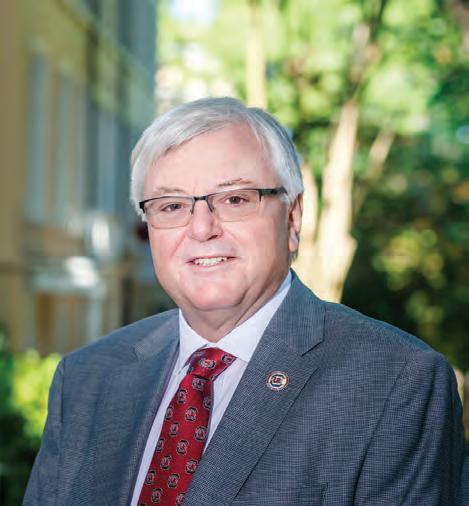


 Dr. Michael D. Amiridis President | University of South Carolina
Dr. Michael D. Amiridis President | University of South Carolina
5



Family Weekend is open to all families as it is the perfect way to get to know the Carolina community better. While you're in town, spend time learning all our thriving hometown — Columbia, South Carolina — has to o er, visit our historic USC campus and meet fellow family members and students. Traditionally, this event includes educational sessions, receptions, and a spectacular football tailgate prior to watching the Gamecocks play!
Registration is required for the three signature events: President Meet and Greet, Rock the Roost, and Family Tailgate Party. Registration opens in July. For details, families can check out sc.edu/familyweekend

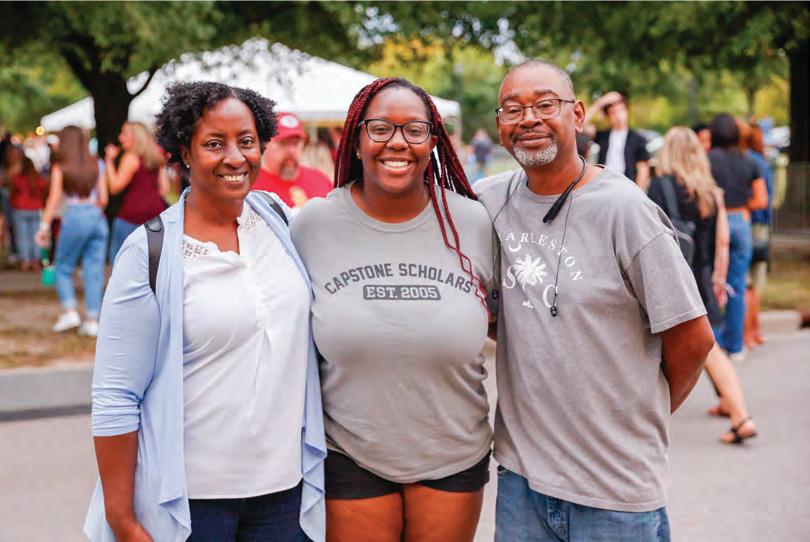
SEPTEMBER
19-21, 2024
*Mobile app available on the App Store or Google Play Store 803-777-3008 scparents@sc.edu sc.edu/parents USC Parents APP CONTACT US


The University of South Carolina is an SEC school known for its Williams-Brice Stadiumbased football team and three-time NCAA Championship-winning women’s basketball team. Sporting events are always hotspots for eager students awaiting another team’s success.
Acquiring tickets to these events differs from the conventional method, as students can request tickets for sporting events at no cost. This is something unique about the University of South Carolina, as other universities typically require students to pay for their tickets.
But this method isn’t all that foolproof, as tickets are usually in high demand.
Ticket requests are fulfilled based on points, and the point system is based on attendance at sporting events. Each level of class standing is awarded a certain number of points at the beginning of the semester — seniors with the most and freshmen with the least, — and students can earn 1 point per sporting event they attend (a select few are worth 2 points). The students with the highest points are secured a football ticket in the lower level student section, and the process continues until both the lower level and upper level are filled.
Due to this method, some students who do not attend sporting events before football games will most likely not acquire a ticket.
However, while this may seem unjust to students without a ticket, it is more fair to the other sports programs that often go underlooked.
“I think it’s fair in the way that it makes students attend other sporting events to show support,” Abigail Lieber, a second-year psychology student, said.
The gamecocksonline.com/cockpit page details how the student ticketing system works, specifically detailing football, basketball and baseball games. The athletic calendar is also on the web page, which is essential as students can typically request their football tickets a week in advance.
If students need help requesting tickets, they can visit the request guide.
This is one of many ways students can acquire tickets, however, they can also purchase them through the general website. So, if students cannot request a student ticket for any reason, they can buy a general ticket instead.
It is important to note that the general tickets will not allow students to sit in the designated student sections.
Through the general website, students can also purchase season tickets for select sports, potentially saving them money from buying each ticket individually.
However, the general website isn’t only for students who cannot request tickets in the student section. It’s also helpful in purchasing tickets for friends who are not students at the University of South Carolina or relatives who are visiting. That way, students can enjoy the game with their friends and family.
A remarkable feature of either ticket is the fact that it is digital. Tickets are easily
accessible through the barcode provided or an individual’s Apple Wallet, where tickets can be added after obtaining one. While this feature isn’t unique to the University of South Carolina, it is cool nonetheless.
Overall, the University of South Carolina’s student ticketing process allows students to enjoy their school’s beloved sports games with ease.




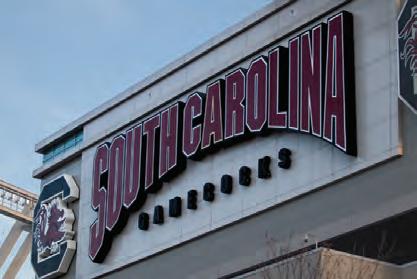



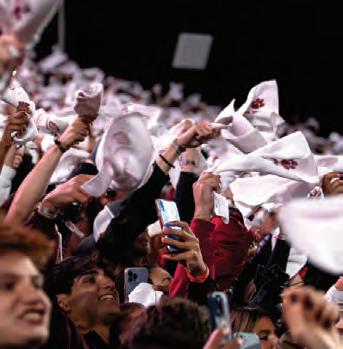








 Photos by Alicia Caracciolo
Photos by Alicia Caracciolo
7
Photo by Tyler Sprague

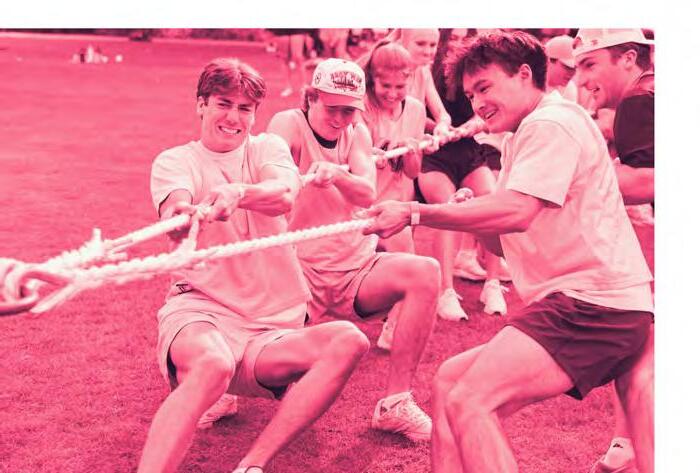
Fraternity and Sorority Life
More than 8,500 USC students are a part of 47 chapters under fraternity and sorority life — a community that was founded on the values of scholarship, leadership, friendship and service.

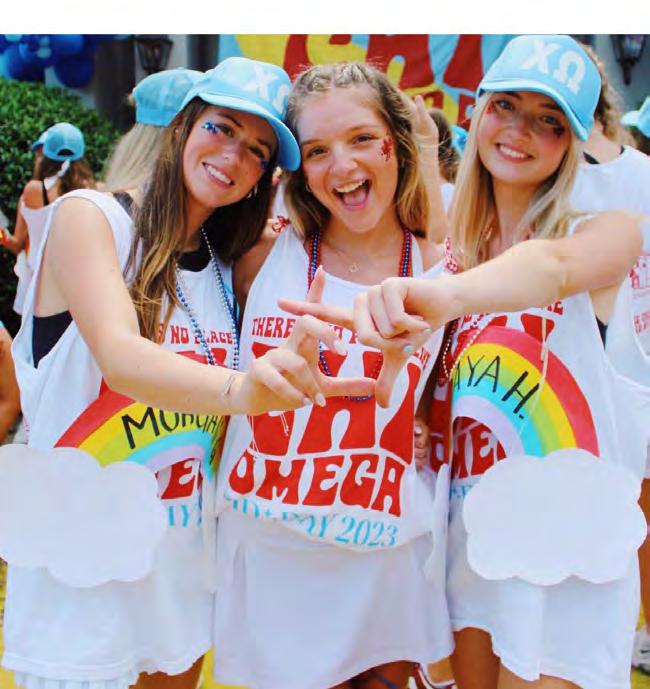

College Panhellenic Association
@uofscpanhellenic @uofscpanhellenicrecruitment
Cultural Greek Council @uofsc_cgc
Interfraternity Council @uofscifc
National Pan-Hellenic Council @usc.d9
Office Account @uofscfsl
8
3.51 Average GPA 1,848 Earned A 4.0 $798,568 Raised For Philanthropy 114,438 Service Hours Completed Follow Us on Instagram! 8,407 Total Members 2,763 New Members These numbers are from 2023


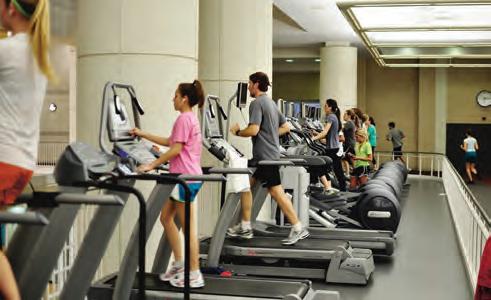



If you’re looking for a way to get out and get active, Campus Recreation is the place to go. With fitness programs, swimming pools, a 52foot climbing wall and an Outdoor Recreation (ORec) Hub, there’s something for everyone to enjoy.
Campus Rec holds two main facilities — the Solomon Blatt Physical Education Center and the Wellness and Fitness Center.
Blatt features a range of cardio and strength equipment, locker rooms and showers, towel services, an indoor pool and equipment rentals. Blatt is also home to the ORec Hub, where students can rent equipment for outdoor activities, including land and water gear.
The Wellness and Fitness Center is a more extensive gym with similar facilities, such as cardio and strength equipment, but it has extra resources. These include an athletic training clinic available to students upon appointment, a climbing wall, Group X classes, racquetball and squash courts, and an outdoor swimming pool. It also offers personal trainers and small group training for those who want to train in a fun and supportive group environment.
Campus Rec also hosts intramural and club sports for students, faculty and staff who choose to get involved with campus sports.
There are also various options for students who want to take outdoor trips. Adventure trips are available on land, rock and water, including hiking and backpacking, climbing and bouldering, and kayaking. Gear rentals are available in the ORec Hub, as well as bike and gear repair workshops.
Justin Furlough, the assistant director of operations for Campus Rec, said that it is essential for students to have access to campus recreation programs, as they provide a focus on holistic wellness.
“We are a safe space on campus where students can come in, and they can figure out what makes them feel best that day,” Furlough said. “Nobody needs to come in here and solely focus on working out. (Students) may come in to do some rehab on some injuries.”
Having access to recreational programs allows students to feel at home and gain a sense of community on campus. Furlough said he hopes that students can find a piece of home or belonging within Campus Rec programs, as students have people to lean on there.
“I think that is like the biggest diamond in the rough that we offer,” Furlough said. “We can help you find that little piece that makes you feel more like you.”
Rowan Hiner, a fourth-year finance student, worked at the Wellness and Fitness Center and continues to use the facilities frequently. He loves the availability of the free facilities and its long operation hours.
To find more information about Campus Rec and any programs that are available, visit sc.edu/campusrec.
Blatt is open Monday through Friday and the Wellness and Fitness Center is open daily to anyone with a CarolinaCard.

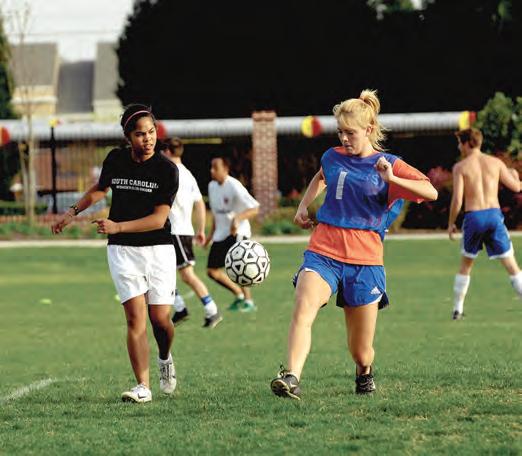

“I was a freshman during COVID and could always rely on the gym being open as a place to go play a game of pickup basketball or lift weights,” Hiner said. “Even now that I live off campus, I go after class because of all the machines and weights available.”
9
Fraternity and sorority life at the University of South Carolina includes over 8,500 students in over 45 organizations throughout four different councils, which include the College Panhellenic Association (CPA), Interfraternity Council (IFC), Multicultural Greek Council (MGC) and National PanHellenic Council (NPHC).
Each council serves community members differently, as described by USC’s Office of Fraternity and Sorority Life.
CPA “is the subset campus organization that supports the Panhellenic chapters on campus.” IFC serves the same purpose but for male counterparts of the Greek community. MGC “is the governing council for the three culturally-based Greek-lettered fraternities and sororities at the University of South Carolina.” The NPHC “is the coordinating council for the nine historically African American fraternities and sororities, eight of which are at the University of South Carolina.” Operating on the pillars of scholarship, leadership, friendship and service, members of fraternity and sorority life are committed to forming lifelong bonds and bettering the Columbia community and beyond through various philanthropic initiatives.






Membership goes far past social relationships. According to USC’s Office of Fraternity and Sorority Life, around 21% of members held a 4.0 GPA, and cumulatively, the community “completed over 140,500 hours of community service and donated more than $1,263,000 to philanthropic partners.”
USC and its various organizations work hard to make recruitment processes equitable and to keep its members feeling safe and valued within the community. Leadership, education and service are core tenets of the fraternity and sorority experience, and strong friendships often stem from these involvements.
Leaders of these organizations have a very positive impression of the impact that they have on members.
“(I) can confidently say that Greek life enriches the lives of its members by fostering a strong sense of community, providing leadership opportunities and creating lifelong friendships,” Neehar Patel, the vice president of public relations for the IFC, said.
Similarly, Alexa Gyllensvaan, president of Kappa Kappa Gamma, said that her organization is “full of kind-hearted, funny and genuine women” and that all College Panhellenic Association chapters would say the same.
10
“We stand for creating meaningful connections with others around us and staying true to our commitments. Kappas are always seeking new challenges to grow and learn together to continue inspiring positive change wherever we go,” Gyllensvaan said.
Fraternity and sorority life at USC continues to evolve as new organizations are introduced to campus and the community grows, both in number and positive change.
“If I had to describe (fraternity and sorority) life at USC in one word, it would be ‘dynamic’ because it continuously evolves to meet the changing needs of our members and campus community,” Patel said.
As a leader on the executive board of one of USC’s four central councils, Patel has a unique perspective on member development.
“(My) favorite thing about being on the IFC executive board is witnessing the positive impact our organizations have on campus and the personal growth of our members,” Patel said.
However, it’s always important to recognize
Patel said that “Greek life at USC is thriving,” but more must be done in “diversity, inclusion and community engagement.” Throughout the past year, a conscious effort has been made to emphasize collaboration between all Greek councils.
“Different organizations, including NPHC, IFC and CPA, interact on campus through collaborative events, service projects and social gatherings, promoting unity and cooperation,” Patel said.
Fraternity and sorority life plays a prominent role in personal and community involvement at USC. Members contribute their time and energy toward internationally relevant, impactful philanthropies while deepening their friendships and furthering their education.
If you want to learn more about fraternity and sorority life at USC, visit sc.edu and search “Fraternity and Sorority Life”


GET INVOLVED!






The Center for Integrative and Experiential Learning is here to help you leave your mark. Through their vast amount of resources and Graduation with Leadership Disctinction program, you can truly get the most out of your time at Carolina.
A formal distinction that honors all you’ve done in and outside the classrom.
GLD is the perfect opportunity to re ect on your accomplishments and involvements at Carolina!
Engage beyond the classroom and discover your passions through My USC Experience.
Internships, student organizations, service opportunities and more are all listed in the database!
There’s a variety of funding options available for everything you’re wanting to accomplish.
Grants are available to students, sta , and faculty!

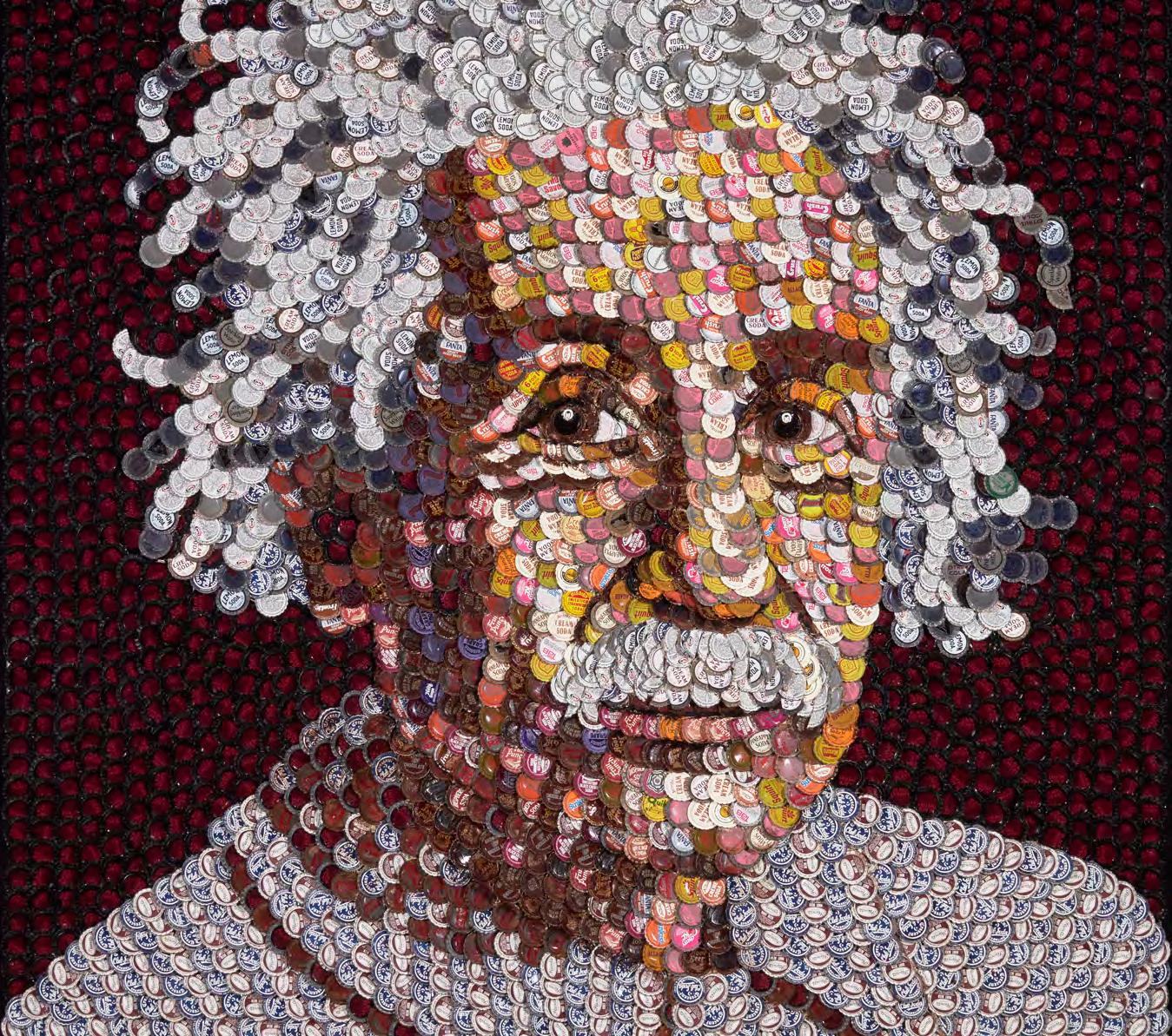
12 SCMUSEUM.ORG | 301 GERVAIS STREET BE
Explore Science, Art, History & More Visit Today
CURIOUS
Molly B. Right. Albert Einstein, 2014. Bottle caps on metal. Museum Purchase.







Garnet Media Group is USC’s home for print, digital and broadcast media. GMG is the partnership between the university’s four student-run media organizations, which include The Daily Gamecock, Garnet & Black magazine, Student Gamecock Television (SGTV) and WUSC. There are also four support teams — advertising, creative services, marketing and podcasting. This allows students to see what the world of media production holds for them and viewers to see a wide range of media curated for broad audiences.
The Daily Gamecock is USC’s student-run newspaper that publishes daily online content, daily email newsletters and three print editions each semester. Students have the opportunity to work for either news, sports, opinion, arts & culture, copy desk, photo, design or the engagement team.
Assistant Director of Student Media Sydney Cranmer started writing for The Daily Gamecock during her first year at USC. Beginning as an arts & culture reporter and opinion writer, she eventually became copy desk chief and then editor-in-chief. Now, she works with students as a professional staff member to give them the advice and resources they need to succeed.
“This is the only place where you can do anything you want,” Cranmer said regarding students’ freedom to make all content-related decisions for their organizations.
“There is no editorial-related decision that I make, ever,” Cranmer said. “I’m here as a person to give guidance, but I don’t decide what runs, I don’t decide who reports on what, and I like it that way.”
SGTV, the university’s student television station, publishes on its website, YouTube and
By Sophia Wurster & Tyler Sprague
social media platforms. Five branches within SGTV produce news, sports, entertainment, short films and narrative television (1080C Productions), and sketch comedy (Carolina Tonight). Opportunities for students to act, write scripts, report and video edit are available in all branches along with other media production work.
Nick Hill, a third-year visual communications major, is SGTV’s station manager for 2024 and will be the visual/engagement director of The Daily Gamecock during the summer. Hill said he gained many skills for his future while working in both positions.
“I have had such amazing opportunities to learn more about social media marketing, growing my skills in photography and so much more. Overall, I can say without a shadow of a doubt that I wouldn’t have the opportunities or skills without being a part of GMG. I came here with no experience, and I am leaving with skills and experiences that I will be able to talk about for years to come,” Hill said.
USC’s magazine, Garnet & Black, produces two print issues yearly (one per semester) and publishes online content throughout the academic year. The team of designers, photographers, writers and editors create long-form articles and stories focused on issues of general interest in the Carolina community, with a special focus on social justice, arts, culture and local highlights.
WUSC, the university’s radio station, broadcasts on 90.5 FM and HD-1 Columbia and reaches a 30-mile listening radius. WUSC is unique in that it is noncommercial and non-Top 40, so you’ll always hear something unique. Student DJs can host free-format shows or specialty shows that can focus on one genre of music or a specific type of






content. WUSC also has five offices to get involved with, including station manager, news, public affairs, music and programming.
Hill said that his favorite part of being a member of Garnet Media Group is the friends he has made within the organization. Since everyone is working under the same umbrella, he said it feels like all the students are a family trying to accomplish the shared goal of creating content.
Since his leaders are also students, it helps create a friendly, supportive environment. Leaders are understanding and happy to determine solutions if staffers are busy with schoolwork.
“We’re all students. So student-run is always a really nice aspect to it,” Hill said.
“The point is for our student leaders to have that hands-on experience, very near to a reallife scenario,” Cranmer said. “You get a good feel for that, and you build those skills, and you are better at that when you actually have to go out and do it in the real world.”
Garnet Media Group is open to any students of any major. There are opportunities for everyone to make friends and figure out what they genuinely enjoy doing.
“I wish I was in (Garnet Media Group) first semester freshman year because being a part of GMG, you really get to have friends. It’s like being put in one big house, and you just have to be friends,” Hill said. “I couldn’t have traded this experience for the world. I wish I could do it for another four (years) if I had the chance or the opportunity.”
To find ways to become involved in Garnet Media Group, visit garnetmedia.org/join.
13
The Leadership and Service Center is home to all things student involvement on campus. The LSC is located in the Russell House and connects students with leadership, community service and civic engagement opportunities. The LSC oversees over 500 student organizations as well as offers many programs for students wanting to get more out of their college experience.
Organizations range anywhere from the iconic The Lettuce Club and Blossom Magazine to Carolina Ballroom Dance Club and Cocks vs Zombies and so many more. There is undoubtedly a place for every student in a student organization.
Garnet Gate is home to all information regarding student organizations and events held around campus. Still, it is beneficial to interact with members of student organizations when looking to join one.
The LSC hosts the Student Organization Fair at the beginning of each semester. This event traditionally takes place on Greene Street during the first two weeks of the semester. Tables line each side of the street, with each student organization having its own table staffed with club representatives ready to answer questions and give out information.
One of the most prominent organizations featured in the LSC is Pillars for Carolina. Pillars is a four-day student-led program tailored to incoming first-year students. The program aims to create a foundation of community and confidence that students will build upon throughout their years at USC.

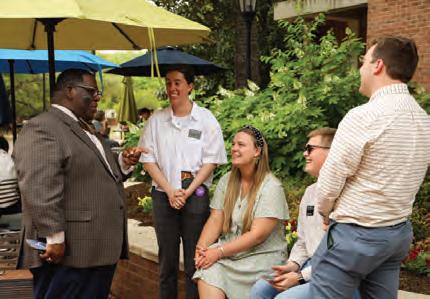
“The support that I get from my advisors and other staff members of the LSC for my amazing program, Pillars for Carolina, is beyond anything like I’ve experienced before. I’m pushed to try harder and grow personally and professionally, but I am still recognized for my accomplishments,” Delaney Newman, the co-director of staff development for Pillars, said.
The LSC has more than just student organizations in which students can get involved. Other offerings include going on an Alternative Break or helping with Service Saturday.
Alternative Break Programs are offered during fall, winter and spring break, which aim to engage students in meaningful community service projects. Students travel to communities that need assistance and complete service projects to help fulfill those needs. Students can apply to be an Alternative Break Trip Leader, who dedicates two semesters of service to the program and has the opportunity to plan a service trip around a theme or destination of their choosing.
On the other hand, if you want to stay local but still serve the community, the LSC holds monthly service opportunities on Saturdays. Volunteers can choose from various service sites and activities to help support the Columbia community. Participants check in on Davis Field and transportation is provided to and from the service site locations. Registration is required to participate and can be done on the LSC website.



Regardless of what students choose to get involved in, the LSC offers leadership development programs such as the Close Family Emerging Leaders Program. This in-person, seven-week program is for students who want to build their leadership skills and bring change to the USC community. Upperclassmen can serve as mentors in this program.
The Leadership and Service Center also takes civil action by advocating for voter registration and through the Civic Leadership Education and Action Team (CLEAT). CLEAT is a group of students who brainstorm, plan and execute nonpartisan events to engage with and educate students on active citizenship.
Students interested in leadership, service, civic action or getting involved in any aspect of campus life should follow the LSC on social media @uofsc_lsc or learn more at sc.edu/leadershipandservice.







14

15


16
Nearly all students will experience offcampus living at the University of South Carolina, and luckily for them, there are many different options to fulfill their off-campus housing needs.
The university provides resources for students to help them choose a place to live and some advice for venturing off-campus through an area of the Leadership & Service Center.
Students should consider the different housing types and evaluate their lifestyles to find housing that will accommodate them accordingly. The university’s resources can help them with exactly that.
First, students should be careful to find a residence within their budget, making sure to account for both rent and utilities. Some apartment complexes include utilities in the monthly rent, but some don’t. Others have a monthly cap.
A monthly rent is also probably new to first-year students who pay their housing expenses all at once. That is why it is vital for students to accurately assess their spending habits to find housing that will fit their financial lifestyle.
Commuting is also a factor for students to consider, especially since many living options are too far away to walk to campus. Many apartment complexes offer shuttles to and from campus, but students will need to adjust to those schedules. And if they are bringing their own form of transportation such as their car, they must consider how much parking will be and factor in the cost of gas as well.
Food is also a considerable expense to budget and plan for. While students can still have a meal plan regardless of their living situation, off-campus housing will bring kitchens and a range of appliances, allowing students to now make their own meals.
However, one of the most important parts of living off-campus is making a conscious effort to keep the space clean for everyone sharing it. This is a concept students should be familiar with from their first-year dorm experience, but apartments and houses have more areas that must be kept clean, especially the kitchen.
Elena Keller, a third-year mass communications student, lives in an offcampus house. She said she and her roommate typically pick up the slack and try to help each other out with household chores.
“It’s hard to keep the house clean because it’s so much more space than an apartment. Mowing the lawn is the hardest — that’s the only struggle,” Keller said.
Additionally, the webpage has a unique feature that allows students to simulate living off-campus through a 20-minute educational module. It details how to party smart, move in and out, and live safely.
Ultimately, the university provides many great resources students should utilize when deciding where to live off-campus. Find more information at sc.edu/offcampusliving.





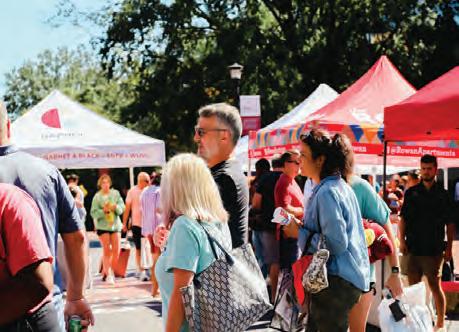



While all of these tasks may seem daunting, students should not fret! The university has another webpage that goes more in-depth on the off-campus living experience, detailing common concerns and providing tips for being a well-rounded roommate.
Tips include maintaining the property — inside and out — and being mindful of neighbors. Another tip details common expectations of pet owners, such as making sure dogs are leashed and picking up after them during walks.
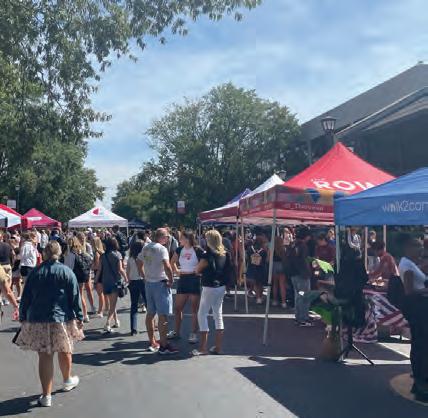








17
PhotobyTylerSprague
By Sophia Wurster & Tyler Sprague
On a campus where historically marginalized identities make up nearly a quarter of undergraduate enrollment, providing equal opportunity for success and a positive college experience is a core aspect of the university’s function.
The Office of Multicultural Student Affairs (OMSA) aims to “educate students and help them grow through active and passive opportunities,” according to the director of the office, Will Sheppard.
“We want to not only meet students where they are with our programs but also help students understand where they are at in a holistic, nonjudgmental approach,” Sheppard said.
OMSA’s programming and initiatives can be briefly summarized in four main areas — student support, cultural engagement, social justice education and resources for LGBTQIA+ students.
USC alumnus Badr Abdullah said being a minority student at a predominantly white institution can be lonely without a robust support system. Programs within OMSA help students find their footing by connecting with other students like them and slowly breaking down barriers that could hinder their growth at USC, according to Abdullah.
Abdullah served as a mentor in OMSA’s Multicultural Assistance Peer Program (MAPP), which pairs first-year students from historically marginalized populations with older, experienced students. Mentors are usually one of their mentees’ first friends on campus and help them take advantage of all the university offers. MAPP holds meetings and social events to establish relationships between mentors and their mentees, as well as academic and professional development workshops.
“When you have that one-on-one connection with someone who has already, you know, gone through the ranks, in a way, that person becomes kind of like your first stronghold, your first footing at the university, your first continent,” Abdullah said.
Other support programs for different populations include affinity groups, designated safe spaces for groups of similarly identified people; Black male-focused initiatives, such as Brother 2 Brother and Cuts and Conversations, an opportunity to talk with other Black men and foster brotherhood; and Queer Connections, a support group for first-year LGBTQIA+ students.
“(These groups help students) create connections within the Gamecock community … and learn about (themselves) and the many identities USC holds and makes us Gamecocks,” Sheppard said.
Hip Hop Wednesday, a monthly event held on Greene Street, allows student organizations to promote their diversity, equity and inclusion initiatives, network and have fun while a DJ plays hip-hop in the background.
Identity365, another program within OSMA, celebrates distinct student identities and cultures year-round through educational and immersive experiences. One prominent Identity365 event is Pridechella, which takes place in April to celebrate Pride. The event features speakers, live music, performances from drag queens and LGBTQIA+ vendors.
In addition, OSMA’s Q’afe provides a weekly opportunity for LGBTQIA+ students and friends to meet, connect, socialize and relax. Although the Intersection Multicultural Student Lounge is always open to all, Q’afe is designed to be a consistent break for LGBTQIA+ students.
The Intersection Multicultural Student Lounge, located in Russell House West Wing 034 (behind Panera and down the stairs), serves as a physical space for conversations and connection within and between affinity groups. Students can hold meetings, work on group projects or just hang out in the multipurpose room. The lounge is open Monday through Thursday from 8:30 a.m. to 8 p.m. and Friday from 8:30 a.m. to 5 p.m.
In addition to providing support and celebrations of different identities, OMSA strives to educate the broader Carolina community on important social justice issues.
One of the ways the office accomplishes this goal is by empowering students to educate each other through the OMSA Peer Educators program. Peer Educators host workshops for students, lead small discussion groups on relevant topics and generally support OMSA’s work across campus.
The office also partners with different departments across campus, such as the Office of Sustainability, to lead discussions on current issues, including environmental justice.
“There are so many departments we partner with that collaborate with, and I truly thank each and every one of them that have served our students. We understand our Gamecock community will Forever To Thee always be evolving, and we must do the same to meet the needs of the community,” Sheppard said.
OMSA provides educational programs on social justice and diversity, including a daylong Carolina Diversity Retreat and ongoing Diversity Dialogues, to help students advocate and become activists for topics they are passionate about, from environmental social justice to the LGBTQIA+ community. Through OMSA’s many programs, students learn to interact with those of different identities, make a difference in the community and become accomplished and aware global citizens upon graduation from USC.
Learn more about the many opportunities to get involved by visiting OMSA’s website at sc.edu/multicultural
18


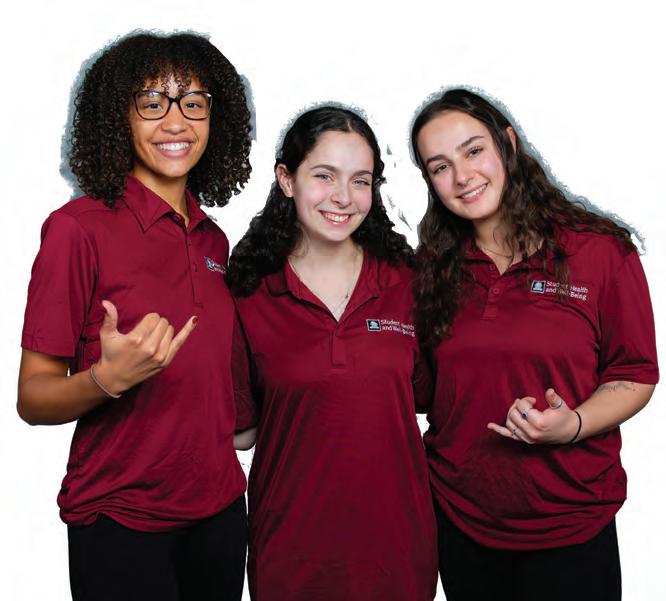

19

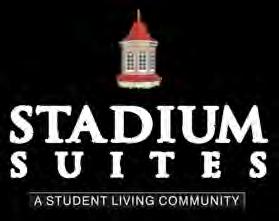











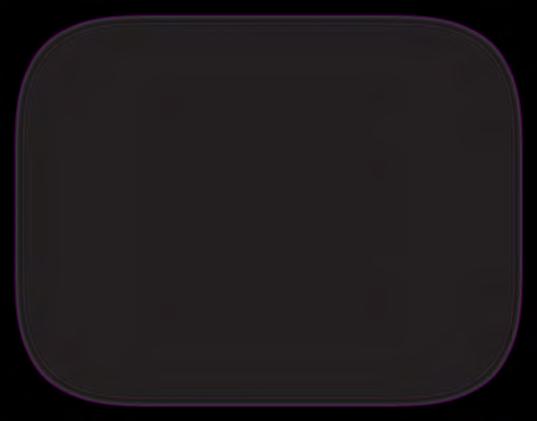





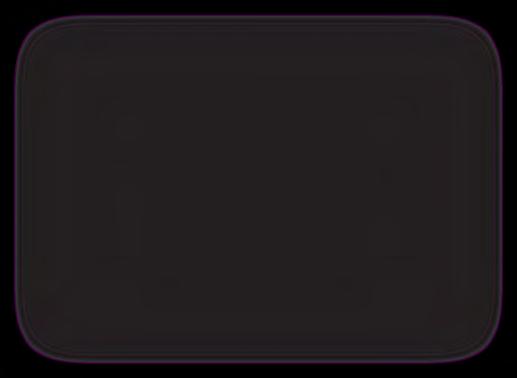

20 CALL 803-779-3280 for current rates! • Fully furnished • Cable TV & WiFi included • Full-size washer & dryer • Internet included • Private storage closet • Private bedrooms and bathrooms • Upgraded units available with granite countertops & other premium features • All apartments have new stainless steel appliances Ultimate Student Living
Looking for something to do on or off campus? Gamecock Entertainment is the source of your weekly dose of fun. From Midnight Breakfast to Thursday After Dark, Gamecock Entertainment has you covered.
Based in Russell House, Gamecock Entertainment plans multiple free weekly events where any student can participate. Their office is also home to Carolina Productions, USC Homecoming, USC Dance Marathon, Carolina-Clemson Blood Drive and Tiger Burn.
Anna-Leigh Taylor, the coordinator for Gamecock Entertainment, describes the organization as the hub for no-cost, fun activities on campus, and said that it serves students by providing a little something for everyone at USC, enhancing students’ college experiences.
“For some, it’s free and fun entertainment. It’s a way to get involved in the Columbia community and really see the area,” Taylor said. “For other students, it’s leadership opportunities and the chance to kind of find their niche within the larger Columbia campus.”
The annual Tiger Burn is one of the most popular events among students. This event is a collaboration with USC’s student chapter of the American Society of Mechanical Engineers, who design and build the 30-foot tall tiger every year. Students then gather outside Williams-Brice Stadium to watch the tiger burn, a highly-anticipated tradition before South Carolina football takes on its rival, the Clemson Tigers.
By Sophia Wurster
Caroline Sunderlage, an intern at Gamecock Entertainment, said she enjoys Tiger Burn because it reaches such a large audience. She also said she loves the Escapology event where GE rents out an escape room for students to indulge in.
“Students really, really enjoy that one,” Sunderlage said. “It’s such a fun event that we do, and everyone’s really into it.”
As an intern, Sunderlage works on organizing and executing the Thursday After Dark events, which serve as late-night entertainment every Thursday throughout the semester. All transportation is provided, and the events range from bowling to drive-in movies and even goat yoga.
“We are promoting the events, usually talking to vendors and trying to plan new events for the future … We’ll go to the vendor, and we’ll set up the shuttles and make sure everything is perfect for when the students show up,” Sunderlage said.
Another popular annual event that Gamecock Entertainment hosts is Flick on the Field, occurring at the end of each school year.
“Our friends at athletics let us take over Williams-Brice for the night, and we play a movie on the scoreboard screens,” Taylor said. “It’s just a really great chance for the students to come celebrate the last day of class and really the end of another successful school year.”
Students have many chances to get involved with Gamecock Entertainment, from employment opportunities within the organization to participating in its weekly events.













For more information on Gamecock Entertainment and its events, visit the “Upcoming Events” tab on the USC Russell House website. Students can also text “Gamecock” to 71444 to receive text updates about upcoming events.
21






‘If you’ve enjoyed a guided tour of campus or a sunny day of studying, you’re well aware of the university’s iconic and historic Horseshoe and its beautifully manicured grass and moderately dangerous bricks. But there are many other gorgeous spots to stop for a photo-opp across campus, if you know where to look. Check out this map for some of the lesser-known places to grab a perfect snap of the Carolina campus or the Soda City.















































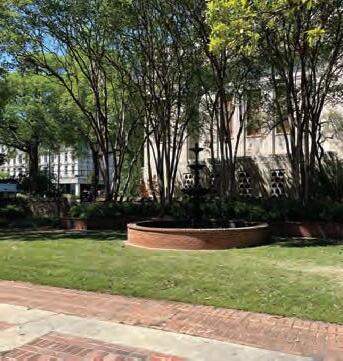






































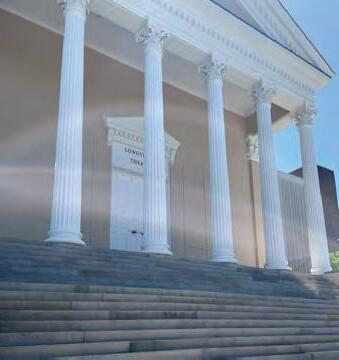












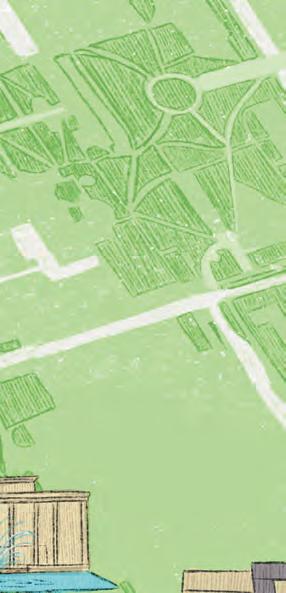





















22


























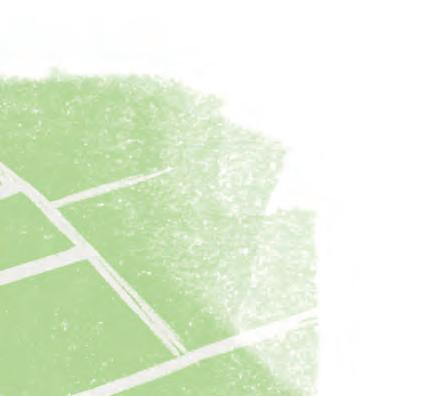






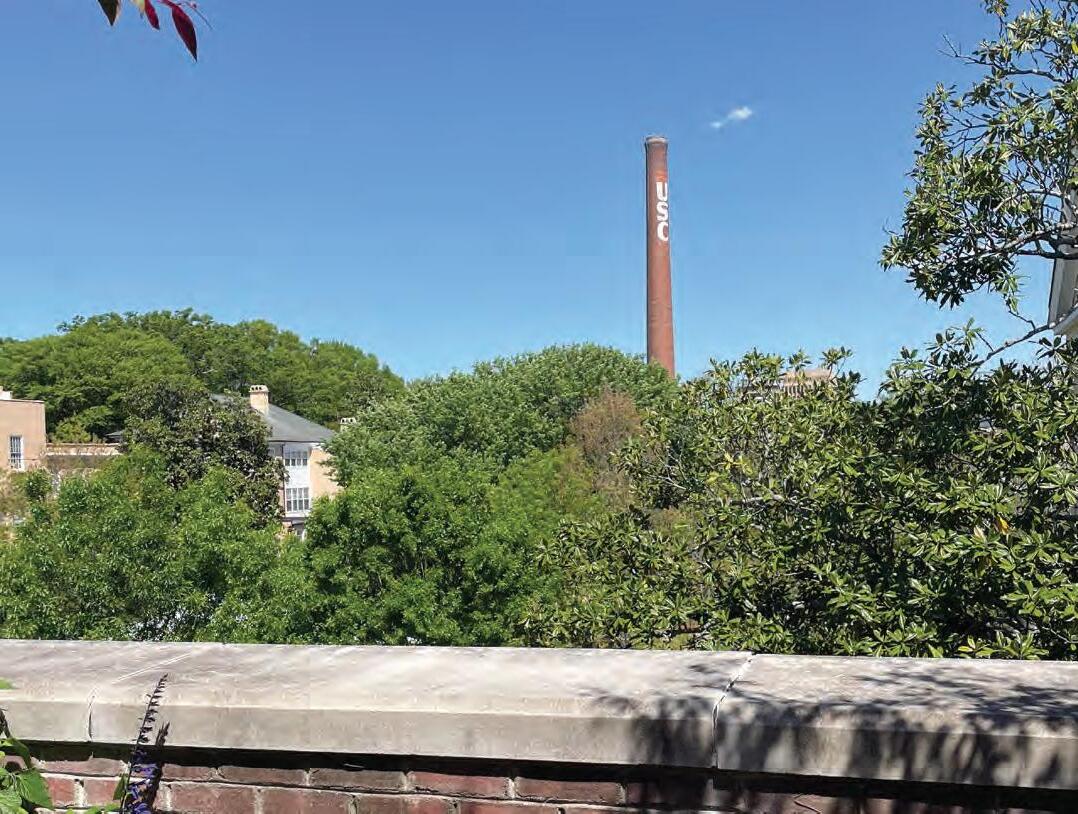



































































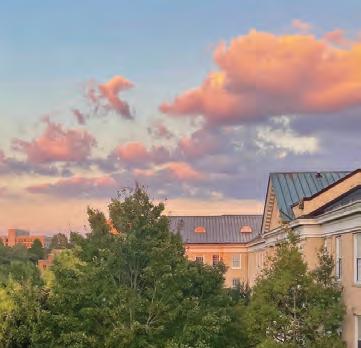
































































23

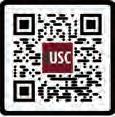
Find available parking near your chosen destination, get reminders on where your car is parked, and be notified about citation warnings!
For more information, visit the USC Parking and Transportation Services website and log into your parking account.


Get where you need to go with Transloc. Explore bus transit stops and services around you, know when the bus is running, stay up-to-date on scheduled and estimated arrival times, and more!
24
By Tyler Sprague
The Office of Parent and Family Programs helps families of USC students find all the information they need to stay informed and connected throughout their student’s college years.
“I have seen the breadth of opportunities and resources our university offers its students,” Cecelia Tatro, a USC alumna and former intern for the office, said. “It has given me a greater appreciation for the intentionality that our university staff pours into programming. It is a rewarding experience to share it with our Gamecock parents and families.”
The easiest way to connect with the Office of Parent and Family Programs’ resources is to visit the office’s website at sc.edu/parents. It consolidates and provides information about what is most important for families to consider as well as the other ways families can connect with USC.
One of those methods is the Gamecock Family Hub, a one-stop shop for campus resources, personalized information and relevant articles on topics from which families can benefit. The Hub features more timely information, and families can select how often they’d like to receive email newsletters that include announcements, reminders and updates.
The office also provides a mobile app on which users can access information on academic calendars, move-in procedures, financial aid and tuition payment, campus safety and security, maps, and options to contact the office. Simply search “UofSC Parent & Family Programs” in a mobile app store or follow the guide on its website.


Those with specific questions or needs can always contact the office at scparents@ sc.edu or 803-777-3008 for individualized support. The assistance line allows parents to speak to someone in the office to ask more complicated questions or get help navigating resources.
“Families just need to remember our number and email, as we can often get them to the right place or office the first time around,” Leena Holt, the director of Parent and Family Programs, said.
Besides sharing information, the office provides a memorable experience through Family Weekend, a signature event that takes place over a weekend during the fall semester. For the occasion, students invite family members and parents to see the campus and experience what it’s like to call USC home. In addition to reuniting with their students, families can connect with others who also have loved ones attending the university.
This upcoming Family Weekend will be held from Sept. 19 to 21, 2024, featuring signature events, such as the president’s meet-andgreet, Rock the Roost and the family tailgate party on Saturday at Williams-Brice Stadium before kickoff for the Family Weekend football game against Akron.
“My favorite parts of Family Weekend are the events tailored for family bonding,” Tatro said. “The family tailgate party prior to the football game on that Saturday is a great time for students to share their love for Gamecock football with their families. Families can feel the energy and excitement of a Saturday in Columbia, South Carolina. There is food, music and space to enjoy the time together.



It is a truly special day when a parent gets to experience their first ‘Sandstorm’ with their student.”
Look out for information about online registration for Family Weekend 2024 in July 2024.
The Office of Parent and Family Programs has many opportunities for students and families to truly take advantage of their time here at USC in a stress-free way.








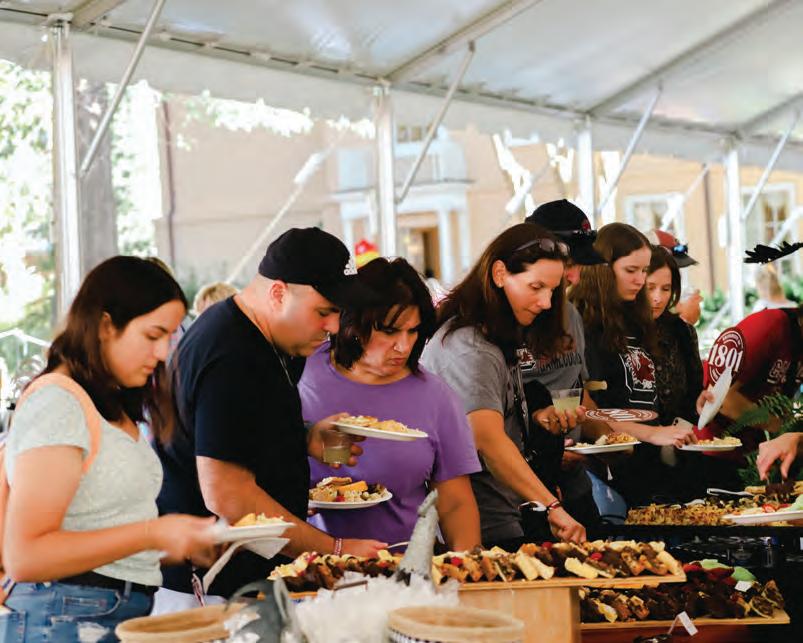








25
By Maddie Lee
In the heart of campus, Russell House University Union serves as a hub for all things student life. Whether you want something to eat, need to stop by the bookstore or have a student organization meeting, Russell House is the place to be. The building is situated on Greene Street between Sumter Street and Bull Street and is truly one of the most used buildings by the student body.
One of the biggest reasons anyone would go to Russell House is to grab a bite to eat. The building certainly has something for everyone, with options ranging from Chickfil-A and Panda Express to an all-you-caneat dining room. Orders can be placed for retail stores on the Grubhub app or at kiosks around the building. All dining options take meal plan dollars and debit/credit card forms of payment.
Almost every year, Russell House’s dining facility undergoes a makeover and provides new dining options for everyone to enjoy. This past year, the building introduced Qdoba, a Mexican-style restaurant serving bowls, burritos and, of course, chips and queso.
You can also get your Gamecock gear at the USC Barnes & Noble. Students can purchase textbooks for upcoming classes or support Gamecock Athletics by grabbing new merch. Moving from the retail food on the first floor, the second floor is home to the all-you-caneat Gamecock Park as well as the Russell House Theater. The theater has hosted watch parties for the Gamecock women’s basketball team’s perfect 38-0 season and several movie screenings put on by Gamecock Entertainment. Student organizations also have the chance to book the space for meetings.
The Leadership and Service Center is also located on the second floor. The LSC focuses on students’ leadership development
through programs such as Pillars for Carolina and helps students grow in the areas of community service and civic engagement.
More information about the Leadership and Service Center can be found on page 14.
The third floor holds more meeting rooms, a large open study space, Garnet Media Group offices, the Gamecock Entertainment office, the Office of New Student Orientation and the Carolina Styles hair salon.
The Russell House Underground, located in the building’s basement, is a fun counterpart to practical resources like the CarolinaCard Office and a post office. Inside the Underground is a music venue, Live at the Underground, which is an experiential learning project put together and run by music industry studies majors. Musical
acts perform each Wednesday during the semester, and students can also watch their friends and classmates take the stage during open mic nights.
Many of the rooms inside Russell House are available to be reserved by student organizations. The building is equipped with audio and live-streaming capabilities, making it the perfect place to have a meeting of any kind.
Outside of Russell House are a variety of spaces to relax, including tables on Davis Field and the patio, or areas on and around Greene Street to reserve for promotion of student organizations and initiatives.
Whether you want a bite to eat, shop, study or just hang out, Russell House has everything you need. Find more information at sc.edu/russellhouse.






26
Substance Abuse Prevention Education, commonly known as SAPE, is “dedicated to promoting healthy, low-risk behavior and encouraging students to make responsible decisions when using alcohol and other drugs,” according to the office’s website.
The most common SAPE initiative that students interact with is AlcoholEdu. AlcoholEdu is an online education program all USC students must complete during their first semester. This online alcohol course measures students’ perceptions of alcohol use and abuse both before they arrive on campus and again after they’ve been on campus for several weeks.
SAPE also hosts tailgates before a few of the home football games in the fall, providing an alcohol-free alternative to pre-game festivities and offering water and sandwiches to students attending the game — whether they are drinking or not.
By Tyler Sprague & Will Kelly
Nikki Prudé, SAPE’s assistant director of outreach and communication, said the goal is for each student to feel comfortable in their habits regarding things like drinking alcohol.
SAPE also oversees Gamecock Recovery, a program that supports USC community members who are in recovery from substance abuse. The program offers free coaching to students that spans all forms of recovery, from personal substance abuse to a student’s recovery from early substance exposure. These meetings cater to the student’s privacy and confidentiality concerns. According to Prudé, students do not have to turn on their microphones or cameras in the online meetings because they are designed to work at the student’s comfort level.
Students Taking Initiative and Responsibility (STIR) is a screening and intervention program that provides students with
information on the negative impacts of substance use and ways to get support. Students can refer themselves or someone they know to this program, where the referred student will take a substance abuse assessment to provide deeper insight into their relationship with alcohol and other substances. After that, the student will attend three sessions with a STIR coach to offer insight as the student completes the program. STIR coaches are graduate students in the Social Work program at USC. They are trained to ensure students get the most out of the STIR program and to guide them to identify high-risk behaviors to make healthy, responsible decisions instead.
SAPE’s office is located on the third floor of the Wellness and Fitness Center. For more information, visit the office’s website at sc.edu/sape.
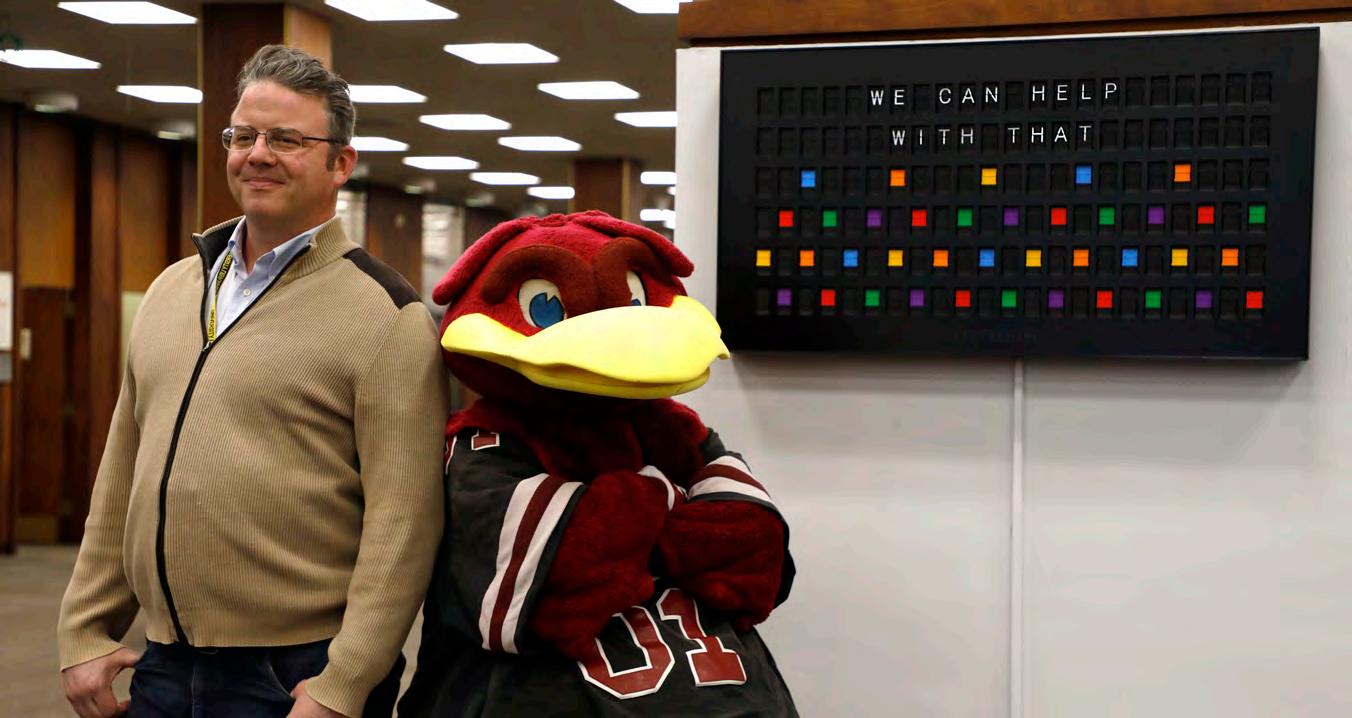
GOT RESEARCH
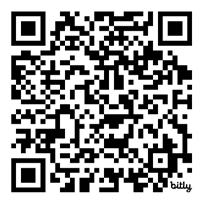
27 WE CAN HELP WITH THAT.
PROJECTS? • BOOK ONE-ON-ONE TIME WITH A LIBRARIAN • CHAT WITH A LIBRARIAN LIVE ONLINE • EXPLORE OUR EXTENSIVE GUIDES TO RESEARCH RESOURCES • EVEN CHECK OUT A PHONE OR COMPUTER CHARGER
By Francesca Cumello
Student Government has been a prominent part of the University of South Carolina since its establishment in 1908. At its core, its mission is to promote the student experience, both on campus and beyond. The organization has many diverse functions and comprises over 100 dedicated members.
Student Government works “to represent the interests of students, preserve and protect the traditions at South Carolina and support students and student organizations in their academic and community endeavors,” according to the SG website.
Mary Grace Labarowski, the deputy secretary of Government Relations and director of the Legislative Action Network, is a proponent of the organization’s benefit to the student community, advocating for the school. She speaks to the many functions within the organization: “Advocacy can look different depending on what you do in student government. For example, the communications team does something different than the sustainability committee; the sustainability committee does something different than the Vice President and the President — their initiatives are a little bit broader.”
The diversity of initiatives within Student Government allows the group to be farreaching and make strides throughout campus life.
“In my experience, we are legitimately lobbying for the school, which has been a great reflection of what I want to do in my life, and I also do feel that I am contributing to the broader student community,” Labarowski said.



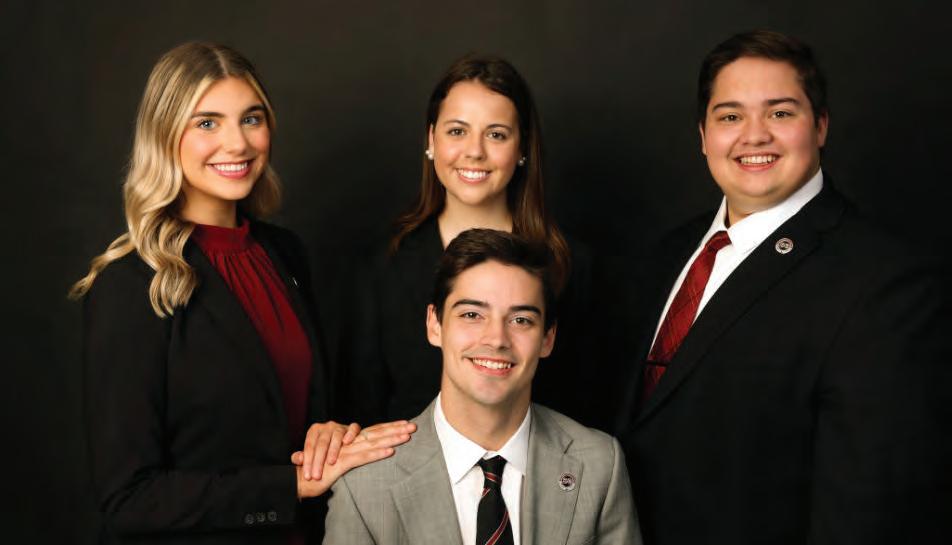

Emmie Thompson served as student body president through the 2023-2024 school year and made many strides at the University of South Carolina for the student experience. Broadly, she is “proud of staying true to (her) campaign promises and following through with initiatives for the student body.”.
Throughout her term, Thompson took charge of “installing portable chargers in the student section of the stadium and offering Uber discounts for students … for the CarolinaClemson football game, Hoops Week, Superbowl weekend and St. Patrick’s Day weekend.” Additionally, she solidified “funding for students to have Uber discounts every single home game next year.”
Each of these initiatives is a solid jumping-off point for the next Student Body President,
Patton Byars, and for students interested in contributing to the organization. Thompson and Labarowski have similar feedback for students considering joining Student Government or feeling driven to serve their community.
Thompson advises incoming and existing students: “Get involved. Whether that is through an organization in college or in your personal life, meeting people and finding ways for your skills and passions to align is how life becomes most fulfilling … I’ve always believed that impact is not what you accomplish, but what others accomplish because of you, so always pour into the lives of those in your community because you never know the domino effect it could have.”
28
From left to right: Courtney Tkacs Student Body Vice President, Maura Grace Hamilton Speaker of the Senate, Jacob Vaught Student Body Treasurer, & Patton Byars Student Body President
Labarowski’s outlook is largely parallel: “In terms of how to get involved, be passionate about whatever it is you want to do, demonstrate a genuine desire to better the student experience, be active on campus otherwise, and also be confident and do it and just apply.”
While Student Government has made significant strides in the past few years and is already a substantial contributor to bettering students’ lives at USC, Thompson still has ideas for growth in the future.
“I think there will always be room for improvement in connecting with the student body. While I’m proud of the work we were able to do on behalf of students this year, there is certainly still a disconnect where sometimes students are not sure what Student Government does for them,” Thompson said. “I hope that now that we have re-established a service-oriented and fun culture in the organization, the reputation of Student Government will be able to better resonate with students.”




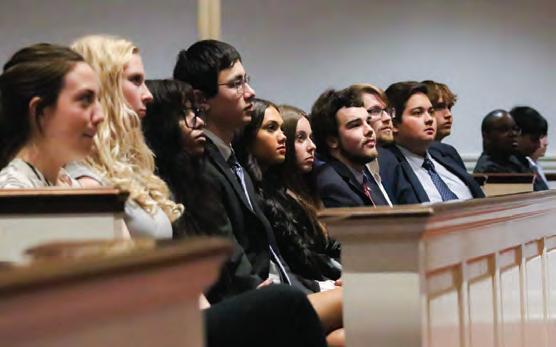


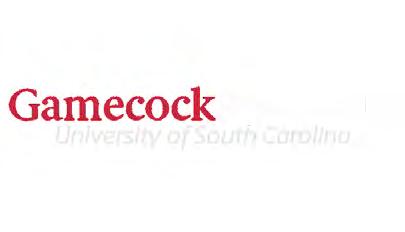



At the University of South Carolina, Student Government works for every student — past, present and future — to augment their experiences as growing professionals and opportunities to succeed.







Gamecock Recovery supports students who are striving for abstinence of use, reduction in use, or more mindful use - as well as all those impacted by substance use disorder in their close relationships.

29
STUDENT LOUNGE BLOSSOM ST ENTRANCE Carolina Coliseum 4001 LEARN MORE sc.edu/sape/recovery
Offer: • student
space • social support • connection with other students • sober social events • peer-based mutual aid meetings • individualized recovery coaching • student employment • education & advocacy FDOC 8/20 2-5 PM DONUT Drop-In
We
lounge & study
By Francesca Cumello
Spiritual and religious life is a significant element of many students’ lives at the University of South Carolina. When leaving home and the communities they have always known, it is integral for students — new and old — to find spaces on campus where they feel safe. For many, this security is found in a religious context. At USC, the Division of Student Affairs and Academic Support makes a clear effort to provide access to spiritual and religious opportunities for interested students. Different support elements include access to religious affiliates, religious centers near campus in the Columbia community and faith-based student groups.
Students can find groups of nearly every denomination and affiliation, and, if they can’t identify an organization that suits their needs, there is an accessible solution. Students can start their own religious organizations. Like starting a new club, the same can be done for students who want to create a new faithbased group on campus.
Existing organizations include Campus Outreach, Carolina Navigators, Hillel, InterVarsity Fellowship and Catholic Campus Ministry — just to name a few of the 22 religious groups.
Lizzie Keegan, a member of the InterVarsity staff, speaks to the importance of religious life for some students and how much growth she has seen in them over the years.
“College is such an important time to figure out who you are, what you believe and what you want out of life,” Keegan said. “Getting to see students go from insecure and uncertain freshmen to confident and mature seniors is the best feeling in the world.”
While leaders of these organizations can see the change as they observe students









throughout their years in college, Keegan also adds: “Being part of a faith community has a huge impact on students. It provides a place of belonging, identity, personal growth, accountability and support.”
Autumn Kessler, a student leader in her religious organization, contributes to this point.
“Being a part of religious life has given me the best support system I could ever ask for in college,” Kessler said. “Everyone I have met has been so kind and open to talk to me about anything. If I ever need anything, I know I have a group of people who would drop anything to help me.”
Beyond the support system, she also acknowledges a strong sense of personal development: “I have felt myself grow in confidence and knowledge. I was really timid and unwilling to have a healthy conflict with anyone. I can confidently say I have grown into myself and am able to have hard conversations.”
Although USC has many opportunities for religious involvement available to students, there is always room for improvement.
“I would want to make religious life more open and accepting at USC. I think everyone deserves to learn about God. I have yet to see




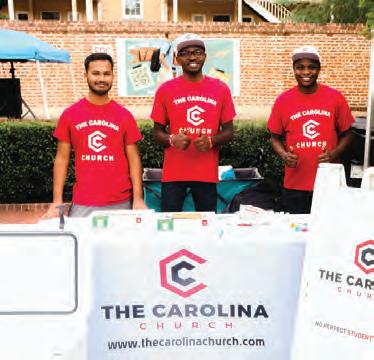



openly LGBTQ+ religious groups advertised on campus. Creating a safe space for everyone should always be the goal,” Kessler said.
Keegan upholds a similar point but focuses on the opportunity for students who do not come from strong faith backgrounds to explore that facet of themselves when they come to college.
“I would love to see us continue to provide opportunities for students of any background to come and seek their faith & discover what they believe,” she said. Another element for expansion at USC is to “work more together on the things we can all agree on — like justice and service.”
Places for students to expand their spiritual and religious involvement on campus include the Carolina Faith Center, Center for Health and Wellbeing, 1409 Devine St., C.A.L.M Oasis, Close Hipp Building, Hamilton College and Russell House University Union.
All students — regardless of background — are invited to explore their religious interests, curiosities and involvements at the University of South Carolina. To learn more, visit sc.edu/ religiouslife and find the right fit for you.
30

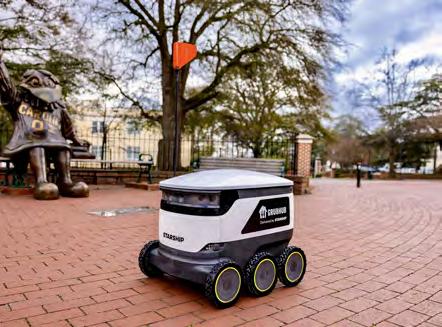
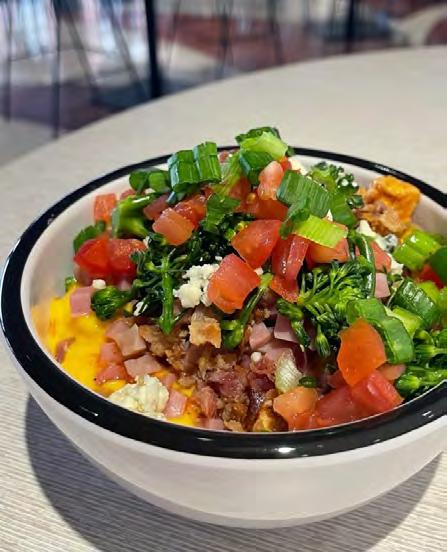
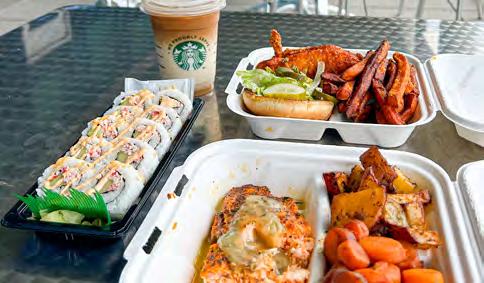
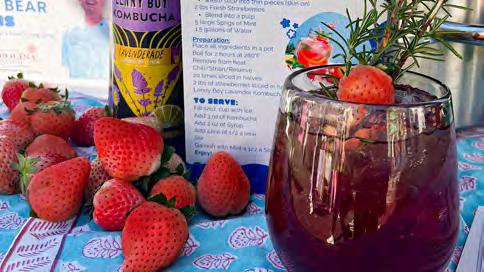


Nationally Recognized, Student Focused Dining Program with Emphasis on Culinary Innovation.
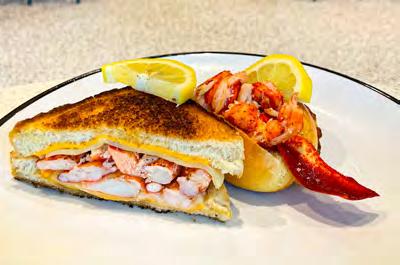



31





32
August 31, 2024 6.99% APR ON SELECT TRAVEL PURCHASES with your Founders Mastercard ® Credit Cards
APR on qualifying purchases for 6 months.
• Hotels • Restaurants • Cruise Lines Relax ™ ... this summer with a promotional APR on select Travel purchases. APR reduction only applies to qualifying purchases made between May 15, 2024 and August 31, 2024. For select travel purchases made with your Essential, Life Rewards, Extra World, or Blue World Elite credit card, the promotional APR will apply and remain in effect for 6 months from the end of the promotional period. Qualifying travel purchases include airfare, hotels, restaurants, and cruise lines. Additional travel related purchases may be included in the promotion as determined by Founders Federal Credit Union. On March 1, 2025 the promotional APR will revert to the effective APR as previously disclosed. The promotional APR does not apply to balance transfers, cash advances, cash like transactions, refunds, and adjustments. Essential Secured and Business credit cards are excluded from the promotion. If your Mastercard becomes sixty (60) days delinquent during the promotional period, the APR on qualifying purchases will revert to the penalty APR as previously disclosed. Except as specifically provided, all terms and conditions of your existing agreements with the credit union remain in full force and effect. Mastercard and the circles design are registered trademarks of Mastercard International Incorporated. foundersfcu.com/travel 800-845-1614 FEDERALLY INSURED BY NCUA. MEMBERSHIP QUALIFICATION REQUIRED.
Now through
Promotional
Airfare
By Jazmine Solorzano
Juggling deadlines, managing finances and navigating a new academic environment — college life can be both exciting and overwhelming. At the University of South Carolina, the Student Success Center is the secret weapon here to help. This unit in the Division of Student Affairs and Academic Support functions as a one-stop shop for academic support, financial guidance and resources that empower students to thrive. The SSC’s mission states that they “facilitate student learning, retention, and degree completion by providing a comprehensive array of programs, resources and services that advance course completion and personal transition to and within the university setting through academic goal-setting, skill development, and effective decision making.”
The SSC’s “Study Smart” offerings include support programs for all student needs. Whether it’s a one-on-one tutoring appointment, supplemental instruction session, writing support or a study skills workshop, the SSC has all the resources a student can use to succeed academically. Tutoring and writing support appointments allow students to obtain individualized support and discuss course content with other undergraduate students who have excelled in these courses.
Similarly, supplemental instruction explores course concepts through peer-led study sessions that foster collaboration with classmates to improve understanding of content. The study skills workshops offered
by the SSC cover various topics, such as time management, exam preparation and effective note-taking.
Tahirah Gerlad, a second-year peer tutor at the SSC, describes the program as “a place where students should go to or utilize to get all of the help they need to be academically successful (and) a wide source of resources that certainly every student should know that they have access to.”
Not only does the SSC offer an array of academic support resources, but it also offers guides for financial wellness and resource management. These “Money Smart” offerings include different money management consultations, covering topics such as Basic Budgeting & Financial Goal Setting, Building & Managing Credit, Financial Planning for Study Abroad/ National Student Exchange and Moving off Campus. These “Money Smart” consultations are essential as students are less likely to be able to focus on their academics if they are struggling financially. With these programs, the SSC can help students prepare for any financial challenges they may face while in college, allowing them to focus on academics.
The SSC also has programs and workshops that help different groups of students make the most of their college experience.
“We know that transfer students and sophomore students may experience unique challenges, and so we have leaders that are
trained to help navigate those challenges and talk with students on resources that they have outside of the student success center that can help them be successful,” said SSC Director Dana Talbert.
These tools are free for students, making the SSC a valuable resource for everyone on campus. The center empowers students to achieve academic excellence, manage finances wisely and make the most of their college experience.
33
By Jenna Swenson
Entering college for the first time can be intimidating for any student. Figuring out how to transition from high school to a university is a daunting task that many might not master immediately. But here at USC, there is a program dedicated to helping students adjust to college: University 101.
Founded in 1972, University 101 is a course open to incoming first-year students, which aims to help them succeed personally and professionally. Incoming students can register for the course during their orientation period to take it during their fall semester. The course is also available to first-year students for the spring semester.
According to the university’s website, University 101 courses focus on enhancing students’ study skills, building connections with campus and fostering positive relationships.
“Any new person to any new organization needs a period of onboarding so they can thrive,” said Dan Friedman, the assistant vice president for University 101 Programs & the National Resource Center for the First-Year Experience and Students in Transition.
Friedman notes that there is data that shows a higher retention rate, first-year GPA and sixyear graduation rate for students who have taken a University 101 course compared to those who did not.
Friedman said University 101 is designed to “help students transition into university, through the university and out of the university.”
Another unique factor about University 101 is the inclusion of peer leaders, seasoned students who also aid in teaching the course. There are many advantages to having a current student as a co-instructor, such as the ability to learn from an experienced student and a chance to foster relationships with students outside the first-year class.
While the course is designed to meet the needs of first-year students, there is no better way to learn about the University of South Carolina than from an actual student. This allows older students to pass down advice based on their personal college experiences.
Peer leaders allow for a more intimate adjustment to college and take the pressure off University 101 students by making the class appear as a social opportunity rather than an academic requirement.
Applications to become a peer leader for the 2025 academic year open in September. Students interested can find more information on the university’s website.
However, while this is a graded course, many students see it as an opportunity to expand their personal endeavors. Between meeting new friends and learning from their peers, University 101 is more than just a college course.
Miranda Knowles, a second-year international business student, said that University 101 was her only class not in a large lecture hall her first year, the only place she could truly connect with her classmates.
“Being a freshman on campus can be overwhelming, but the advice I was given, friends I made and campus resources I learned about were extremely valuable,” Knowles said. “Even a year later, I can tell you the name of every single person from my class.”
The more intimate design of the course allows students to get to know their classmates in a setting similar to high school. This vastly differs from the typical large lecture-styled courses nearly all students will encounter in their first year.
“Being in the business school, all of my freshman year classes were large lectures, and it made it really difficult to meet people. Except for University 101,” Knowles said.
“Fun, helpful, caring” are three words Friedman said sums up the program well.
This course is an opportunity that incoming students should not pass up. Having a seamless transition into college, the opportunity to meet peers and the lessons that will aid students in tackling their first year of college are but a few of the many benefits of University 101. Find out more at sc.edu/university101programs.
34


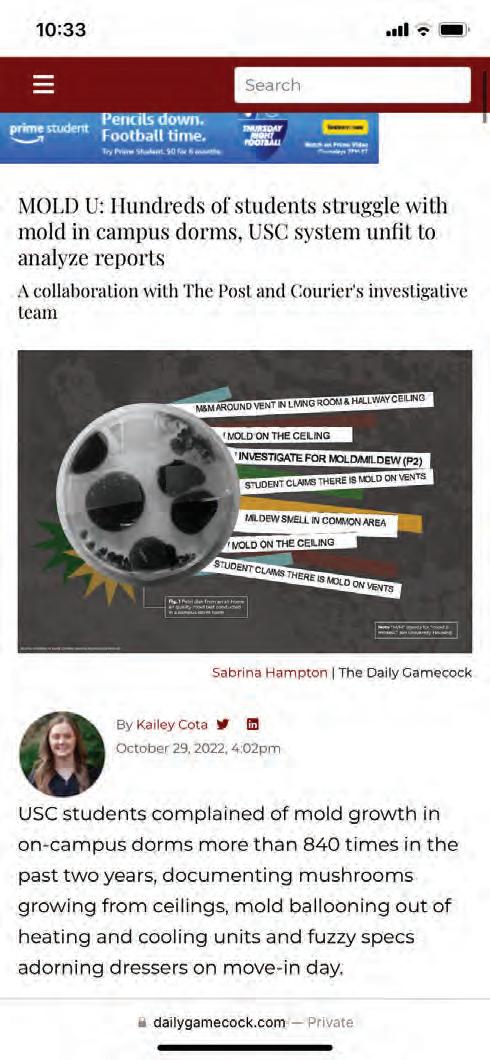
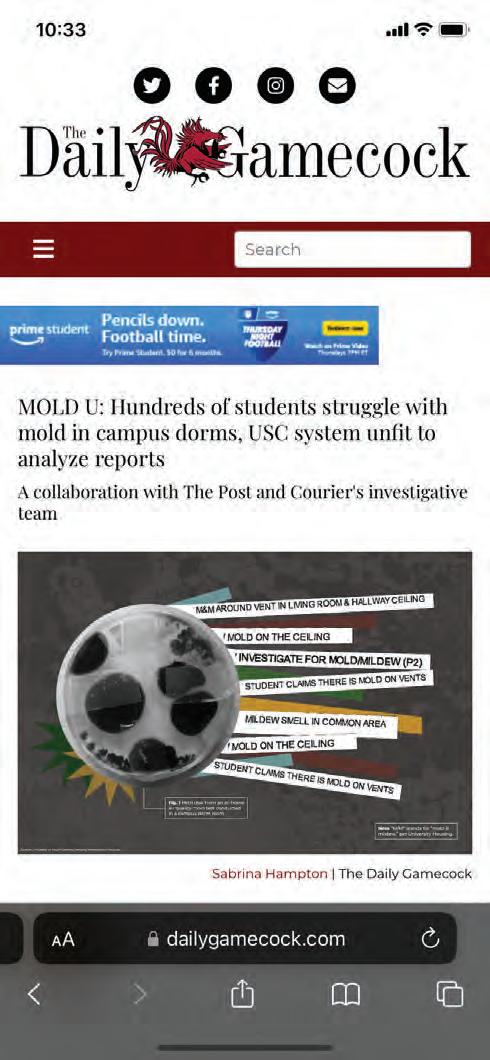


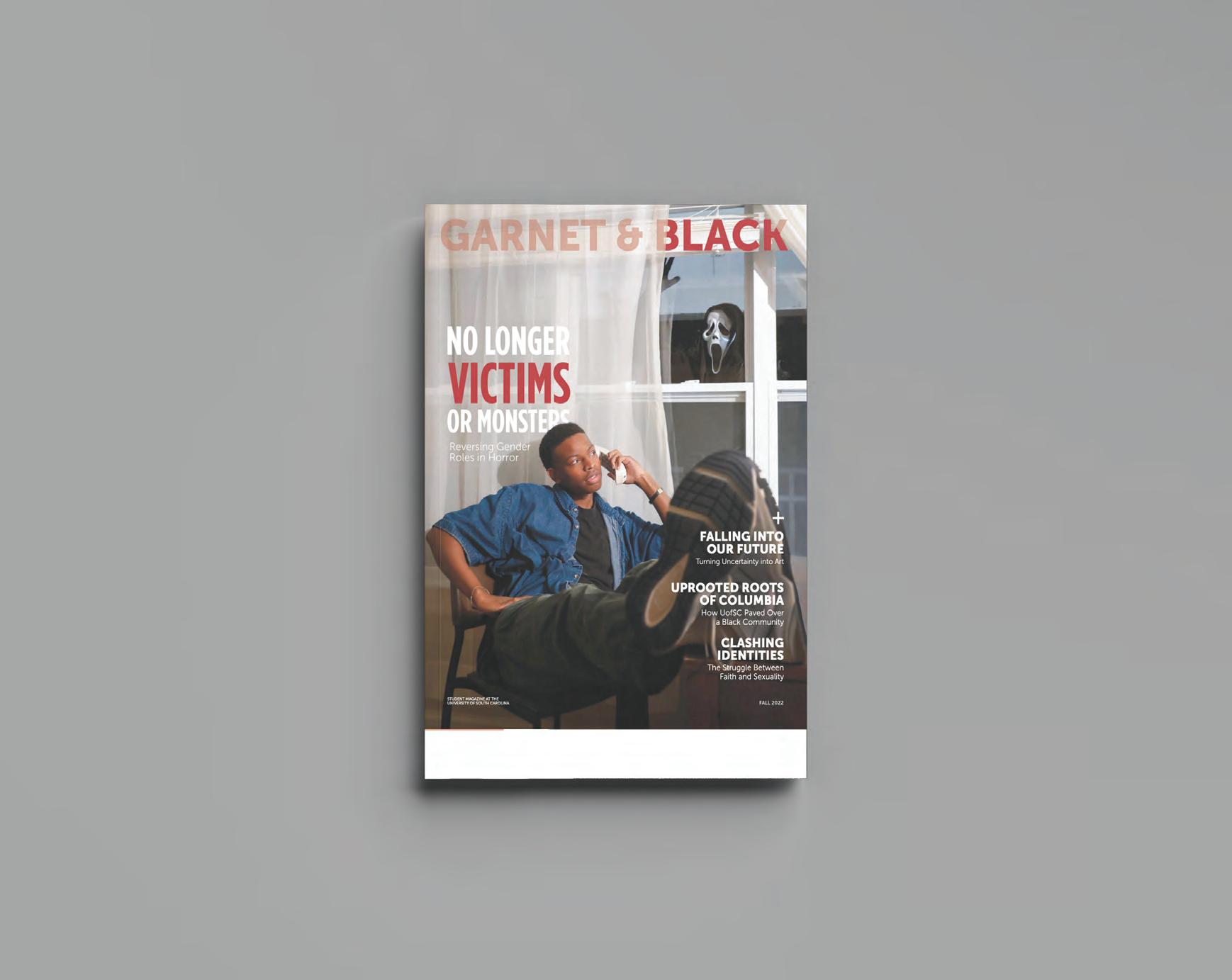


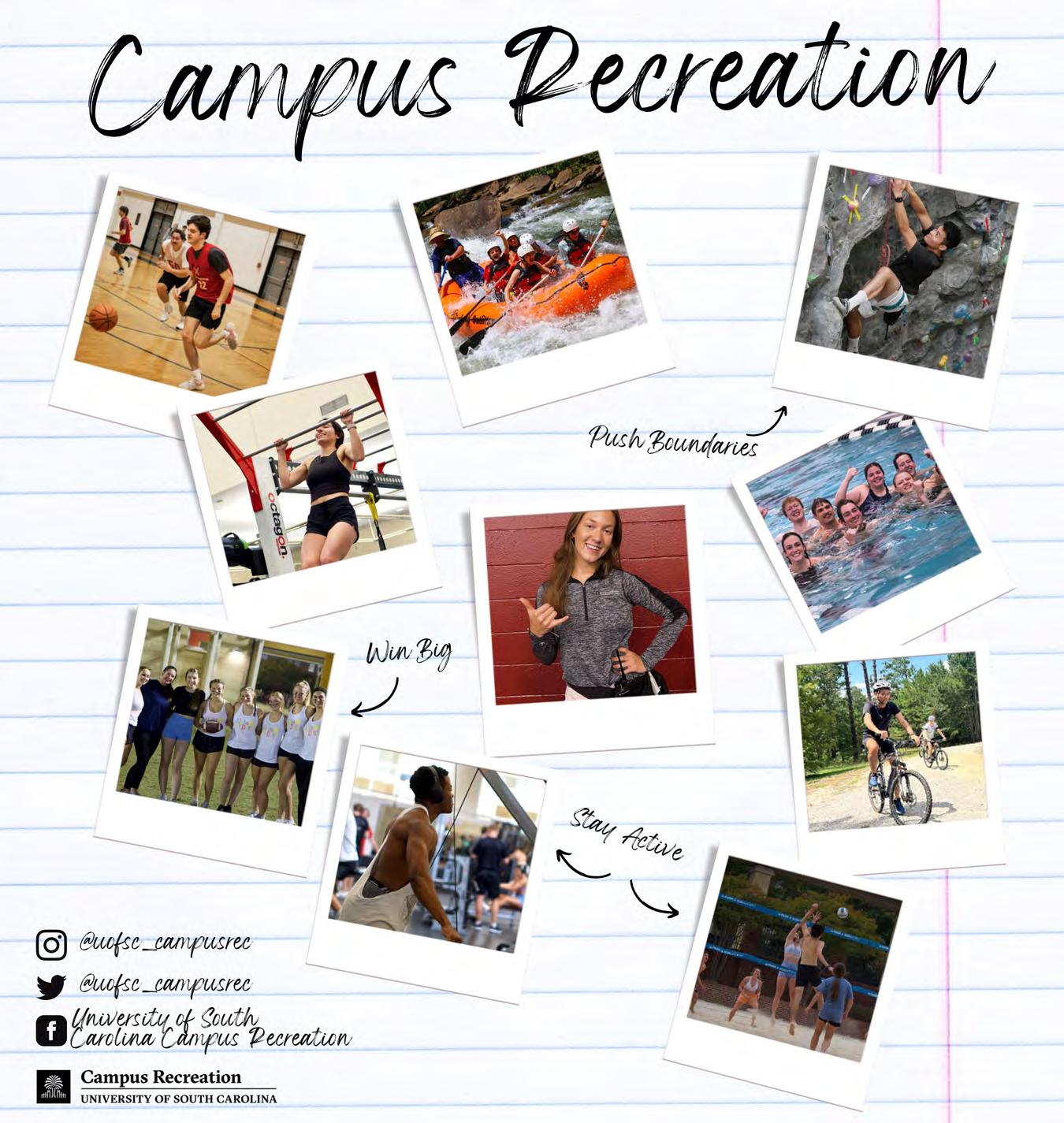
36
By Katryn West & Tyler Sprague
With more than 550 student organizations active on campus, USC offers clubs and groups for almost anything: careers, academics, sports, volunteering, games and other niches. GarnetGate is the university’s online platform for getting involved outside the classroom and serves as a hub of information to help students find and join the organizations they’re looking for.
Users can use GarnetGate to see a full list of all student organizations or to search and filter organizations by name, keyword, subject or category. Logging into the platform will allow you to see full details about each group, including the officers’



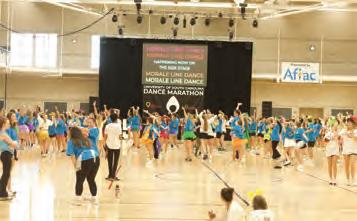


contact information, regular meeting times and important documents. GarnetGate also features information about campus events, including events open to the entire campus community, and allows users to RSVP and track their attendance on the platform. Once a student officially joins an organization, they are listed on that group’s roster. The university formally notes their participation on the MyUofSCExperience transcript that lists extracurricular activities.
Jamie Ayres, assistant director of the Leadership and Service Center, helps students and student leaders use GarnetGate effectively to find opportunities, plan
events, communicate with members and share highlights and organizational news throughout the year. The LSC also hosts monthly workshops during the academic year to help student leaders run their organizations.
“These workshops are really casual conversations about topics that student organization leaders and members are curious about,” Ayres said. “These topics could include event planning, time management, goal setting, self-care and transitioning roles to the next group of leaders.”
If a particular club or organization doesn’t exist on USC’s campus, the Leadership and Service Center has a process for creating a new one. Founding members just need support from seven other members to begin the process.
“If you look for things you have an interest in, you’ll find opportunities that speak to your passions and interests,” Ayres said. “Start with one or two organizations. Get a feel for those, and see what the time commitment is. And, of course, if you don’t find what you’re looking for, come see me, and we can talk about how to create it.”

37
Get the money you need to cover what scholarships don’t. See what you can save when you borrow with us. We can help make up the difference. And, as always, we offer industry-leading rates and local, expert guidance to make sure you get exactly what you need. Most scholarships don’t cover full tuition, let alone the full cost of a degree, which can include things like food, books, transportation, and other educational expenses. SCSTUDENTLOAN.ORG/LOAN2024
Photo by Dylan McCants

38 We’re here for you. Sometimes you need medical attention right away, but don’t need the level of care of an emergency room. At times like these, Lexington Medical Center Cayce Urgent Care is here for you. We treat minor illnesses and injuries when you can’t get in to see your doctor or when you need care after hours. Our on-site imaging services and lab allow our providers to diagnose illness and injury faster. No appointment is needed. Simply use the MyChart app to let us know you’re on the way and reduce your waiting time. Open 8:00 a.m.–8:00 p.m. | Seven Days a Week | LexMed.com 1111 Knox Abbott Drive Cayce, SC 29033 (803) 314-0660 URGENT CARE NOW OPEN
By Jazmine Solorzano
Higher education opens doors to a brighter future. Yet, navigating the college landscape can present unique challenges for many students from historically underrepresented backgrounds. The University of South Carolina recognizes this disparity and offers support through TRIO Student Support Services. This program equips first-generation and incomeeligible students with the resources and guidance necessary to thrive academically and personally.
TRIO at USC is a comprehensive program encompassing various ways to empower students from diverse backgrounds. It uses four initiatives — Educational Talent Search, Upward Bound, Opportunity Scholars and Ronald E. McNair — to help students enter college and complete their studies with greater success. The program aims to increase access to college for first-generation and low-income students, retain students by providing support, and help students graduate with a baccalaureate degree and move on to successful careers.
The Educational Talent Search program begins in the seventh grade for students at select Richland County schools. Its goal is to identify and encourage promising students to pursue higher education by providing academic coaching, college planning assistance and cultural enrichment activities.
Upward Bound is another pre-college program that helps high school students prepare for college success. This intensive
summer program offers academic workshops, college visits and personal counseling for its students, equipping them with the knowledge and confidence they need to navigate the college application process.
TRIO offers two programs for college students: the Opportunity Scholars Program and the Ronald E. McNair Program. The Opportunity Scholars Program provides many different resources for students once they are on campus. These include tutoring assistance, academic advising, undergraduate research guidance, study abroad opportunities and more. Freshmen taking three or more OSPspecific courses can even receive significant tuition reductions. The OSP also includes the Gamecock Guarantee program, a need-based financial and academic support program.
“OSP has allowed me to participate in classes my freshman year with other OSP students who understood and related to me. I will always be thankful to OSP for connecting me with some of my greatest friends who have supported me through my college career,” said Isha Borhara, a fourth-year OSP scholar.
The Ronald E. McNair Program supports TRIO-eligible undergraduates by preparing them for graduate-level education through scholarly activities. With extended faculty mentoring, research experience and other academic opportunities, the program aims to increase the number of Ph.D recipients who are first-generation or low-income students and those who are from underrepresented groups in graduate school.
While these four programs heavily emphasize academics, TRIO understands that success goes beyond academics. The program also offers workshops on time management, stress management and navigating campus resources. Additionally, TRIO fosters community through social events and peer mentoring programs, helping students build a strong support network on campus.
“Mentoring is a big component for those who come here as first-year students whose parents have never been to college, so they do not know what to expect. By being paired with an upperclassman, they can show you the ropes of the university,” said Curtis Pernell, OSP graduate assistant for mentoring and social events.
Mentors get paired with one to three students yearly, building a network of first-generation students and helping each other reach the highest level of success.
By providing a comprehensive support system, TRIO at USC empowers students from all backgrounds to achieve their academic goals and build a fulfilling college experience. This commitment to student success strengthens the campus community and ensures that USC remains a place where opportunity thrives. Learn more at sc.edu/trioprograms.
39
By Lauren Russo & Tyler Sprague
The Student Disability Resource Center ensures that all students with disabilities receive the accommodations necessary to excel during their time at Carolina. The center serves as a mediator between faculty, staff and the students it represents. The SDRC can advise you on classroom accommodations and Student Success Center referrals or serve as a liaison with the South Carolina Vocational Rehab Department or the Workforce Recruitment program. They also host small group activities, including art expressions, career planning sessions and college transition discussions.
The SDRC’s accommodations include alternative testing, reduced course load, alternative format textbooks, note-takers, sign language interpreters, real-time captioning, early class registration, preferential seating and approval for eating and drinking in a classroom or a wheelchair desk. Any student can complete registration online at any time, and the application process can take a few weeks to complete.
To receive the proper accommodations, a student must register with the SDRC by




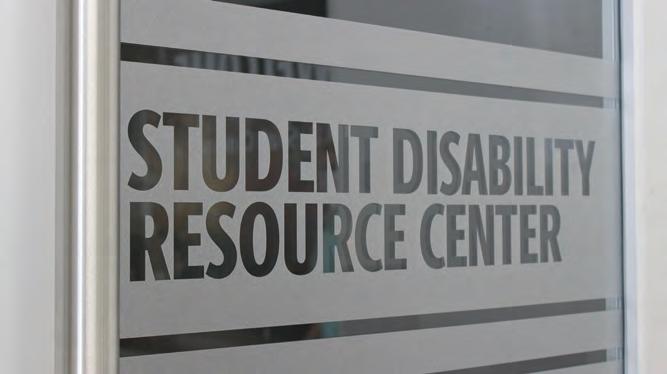


completing the application found on the Student Disability Resource Center website. Next, they must gather the necessary documentation and attend an assigned coordinator’s registration meeting. The coordinator will inform the student of their approved accommodations during this meeting. The final step is to utilize their accommodations by sending out notification letters to each professor every semester they wish to receive your accommodations.
Third-year student Paige Tucci has been registered with the SDRC since her first year.
“It was one of the easiest processes,” Tucci said. “My family and I were very nervous about what the university could do for my accommodations, but my coordinator was extremely understanding and reassured me that my college experience will not be negatively impacted. Anytime I have a question, my coordinator is quick to respond and has also been very helpful as I prepare to go abroad this summer.”
If you have a condition that is temporary but may still impact your ability to perform
well in classes and need accommodations, the SDRC can help with that, too. There is a separate coordinator for temporary conditions and injuries who can start helping you with different accommodations immediately. The first step to receiving your temporary accommodations is to submit a temporary condition or injury application. This application should include documentation from a qualified medical professional about the nature of your injury and how long you will need assistance. Because this process needs to be expedited and documentation may take time to be available, you should still submit your application and email your professors to let them know you have started the process to receive temporary accommodations.
Faculty, staff, parents and other students can also submit a student referral form to help SDRC connect with students who could use their assistance.
The Student Disability Resource Center is located at 1705 College Street in Close-Hipp Suite 102. They can be contacted by phone at 803-777-6142 or by email at sadrc@mailbox.sc.edu.
40

41 RETREATCOLUMBIA.COM | 1929 BLUFF RD | 803-733-5800
42 CITY OF COLUMBIA GET INVOLVED ON CAMPUS @uofsc_campusrec Campus Recreation @gamecockentertainment Gamecock Entertainment @uofsc_lsc Leadership and Service Center RESOURCES @uofsc_onso @uofsclibraries T-Coop @catchthecomet The Comet Experience Columbia @columbiasc The Senate @thesenatecola Five Points
Columbia’s Magnificent Apartment Community
Life is better under the Oaks! Beautiful 21 Oaks offers cutting edge amenities, meticulously groomed grounds, spacious floor plans designed with you in mind, and a dedicated staff that contributes to a higher standard of living. Only steps away from Williams-Brice Stadium, it’s the perfect location for Saturday’s in South Carolina. Live to tailgate, live 21 Oaks
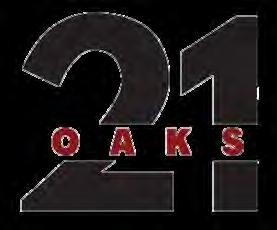
3 Bed, 3 Bath
1,107 sq. feet
3 Bedrooms, 3 Baths
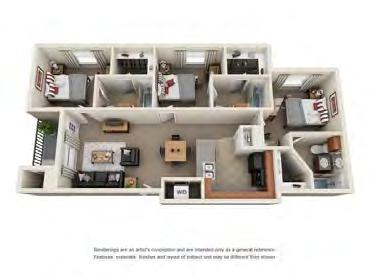
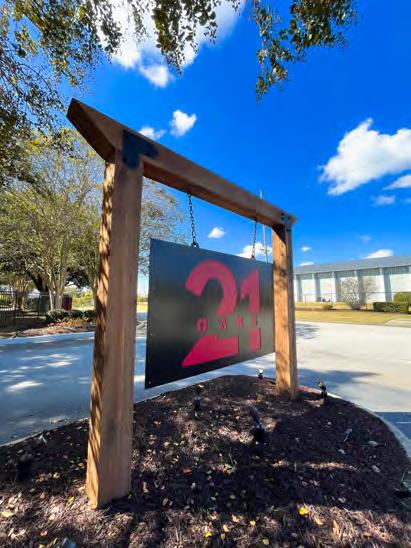
www.hpi21oaks.com
4 Bed, 2 Bath & Super 2
1,108 sq. feet
4 Bedrooms, 2 Baths
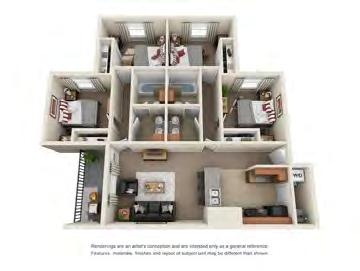
4 Bed, 4 Bath
1,372 sq. feet
4 Bedrooms, 4 Baths
2 Bedrooms, 1 Bath (Split 4x2) Community Amenities Interior Features
Swimming Pool
Business and Study Center
Clubhouse
Pilates and Yoga Room
Basketball Court
Carports
Picnic Areas
Fitness Facility
Shuttle Service
Dog Park

(*Select Units)
Black Appliances
Ceiling Fans
Washer and Dryer
Fully Furnished
Balcony / Patios*

43
Instagram: @21_Oaks




44 Secure your spot for Fall 2024 – spaces filling fast! ALL UTILITIES INCLUDED. FULLY FURNISHED. RIVERWALK ACCESS TOUR TODAY 215 Spencer Place Cayce, SC 29033 CayceCove.com 803-244-9541

OPEN NOW! Open Daily 9 AM - 7 PM 504 1/2 GERVAIS ST COLUMBIA, SC @SURFSUPACAI SURF’S UP ACAI BOWLS NON-DAIRY, NO ADDED SUGAR, GLUTEN-FREE & VEGAN OPTIONS SURFSUPACAI.COM



The Russell House, 1400 Greene Street, Columbia, SC 29208 • 803-777-4160 • @UofSCBookstore SHOP IN STORE OR ONLINE: SHOPGAMECOCKS.COM Shop course materials, supplies, tech, living essentials, and exclusive, licensed gear, all in one place. GET SUPPORT BEYOND THE CLASSROOM.































 Dr. Michael D. Amiridis President | University of South Carolina
Dr. Michael D. Amiridis President | University of South Carolina



















 Photos by Alicia Caracciolo
Photos by Alicia Caracciolo












































































































































































































































































































































